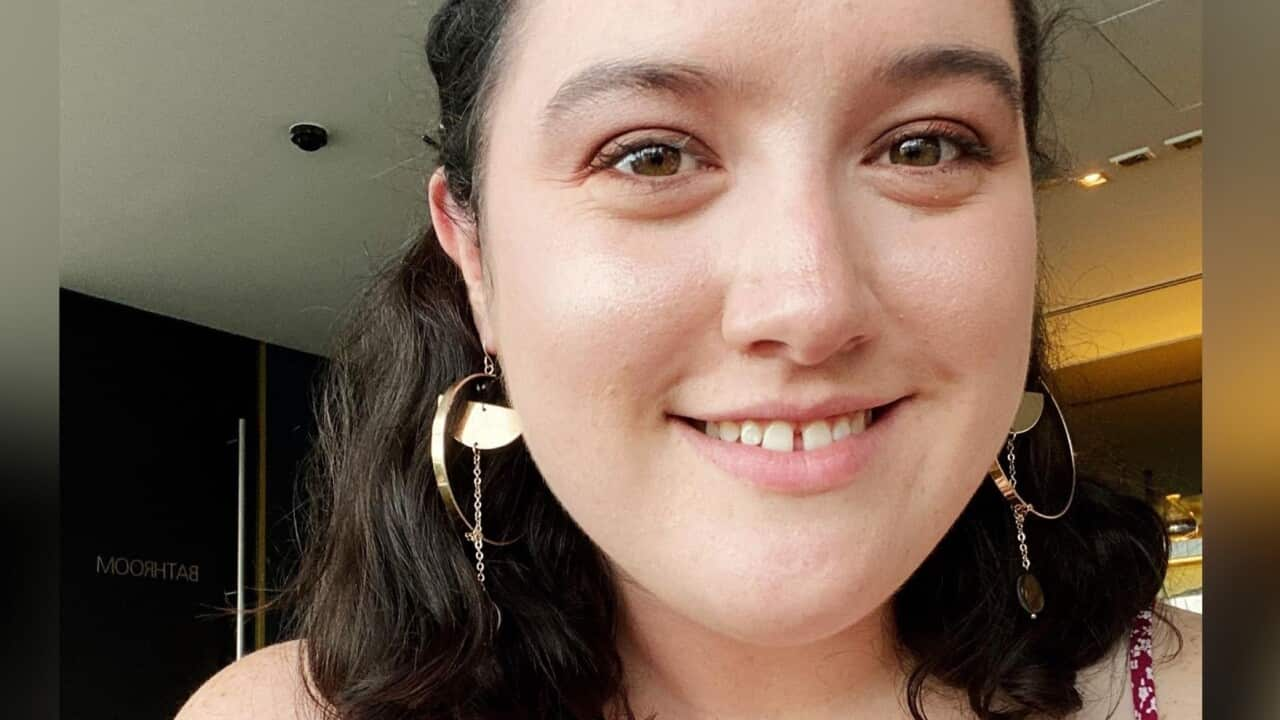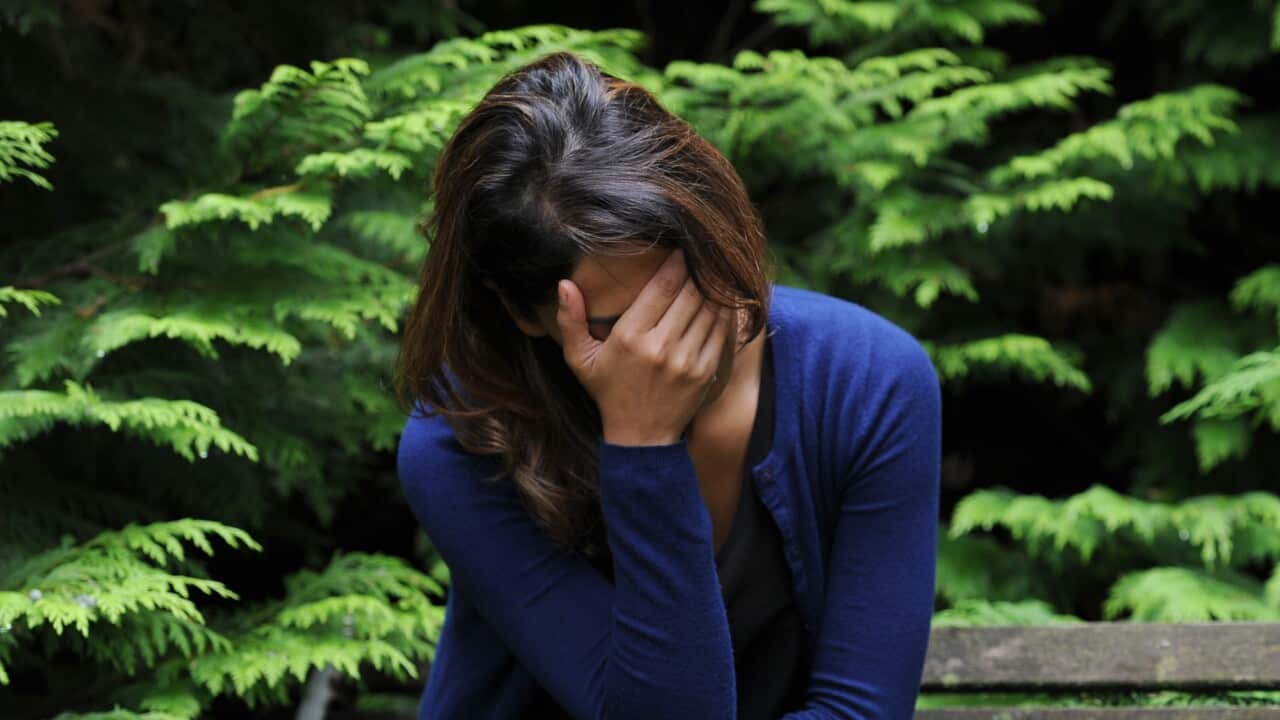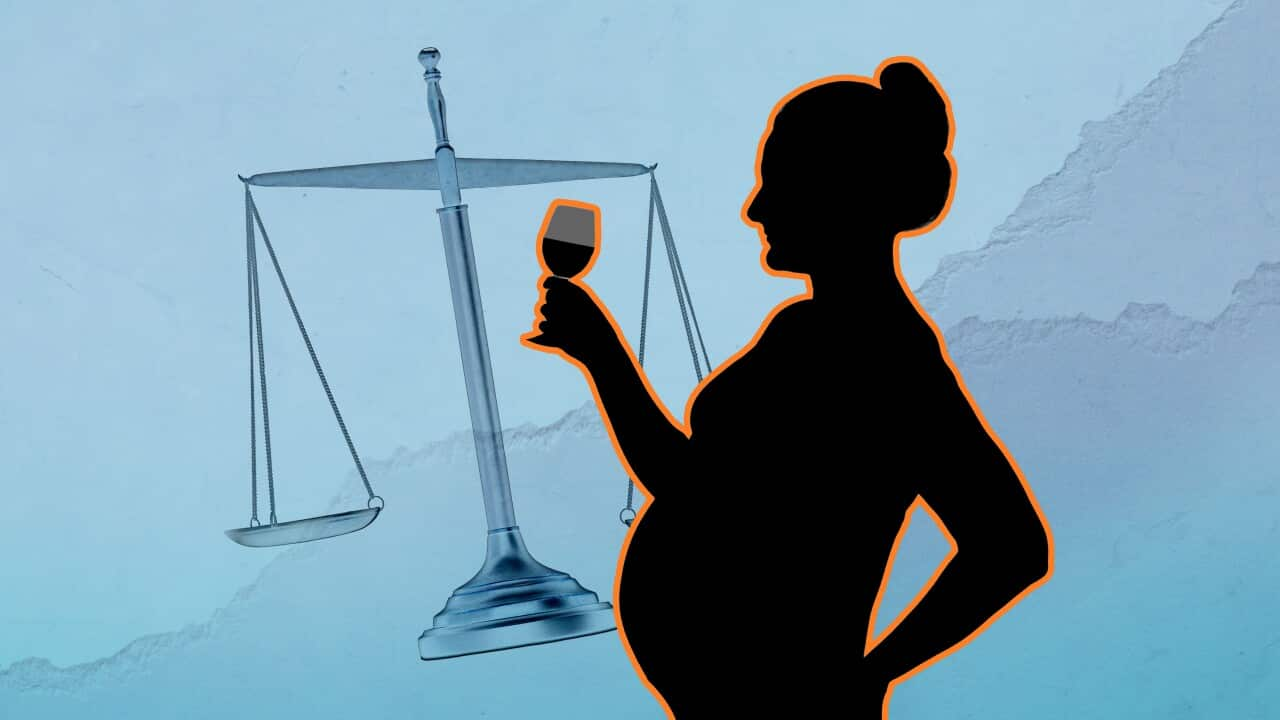Key Points
- Cost of living pressures negatively impacted mental health of 59 per cent of the 5,000 Australian women surveyed.
- Liptember Foundation has released its second annual national research study on women's mental health.
- About 31 per cent of women surveyed said they didn't seek help because they couldn't afford it.
For 34-year-old Ricki-Lee Barley, the birth of her second child during the pandemic set off a debilitating period of anxiety.
"I couldn't sleep, the constant thoughts were fatiguing. It felt like a heavy cloud going around my head," she said.
Household finances were particularly tight, with the sole income coming from her partner's reduced wages as an apprentice carpenter.
Ms Barley knew she needed mental health support, but finding the finances proved challenging.
"Initially, I felt guilty about the cost, but in reality, I needed the support. I had to reframe my thinking. I now understand I am the backbone of this family, and I need to sort myself out before I can help others," she said.
Funds from a bank overdraft from the sale of their home - after they relocated to West Gippsland in regional Victoria - helped to cover the cost.
"It was a relief to finally get a diagnosis so I could access treatment. I'm a happier person when I have that support," Ms Barley said.
Similar experiences were reported by Australian women in the 5,000 survey responses collected on their mental health.
The Liptember Foundation was founded in 2010 to raise awareness about women's health issues.
Last year, the charity conducted its first national research study to direct its funding and advocacy better. This year, it conducted the survey again to see what had changed.
Costs a barrier to women seeking mental health support
The co-founder and CEO of Liptember Foundation, Luke Morris, said last year's survey focused on COVID. While this year, a different theme emerged.
"A big part of our research this year touched on the cost of living pressures. Cost is a really tough one to address," he said.
Of the survey participants, 59 per cent reported a negative impact on their mental health from cost-of-living pressures, with only 15 per cent then seeking help.
Of those surveyed, 31 per cent said they did not seek help for their mental health issues because they could not afford it.
"But we see a real-world trend in women not placing their mental health as a priority. What came through the research was for women, being that central hub of families and communities, they tend to put others first," Mr Morris said.
"We're always trying to reduce the stigma around that and to encourage the message that it is okay to take time to focus on themselves and to avoid burnout."
Pressures cited included the increasing cost of grocery, petrol and utility bills; uncertainty about the future and less money to spend on feel-good activities like dancing and socialising with friends.
Clinical psychologist Madhavi Nawana Parker provides expert advice to the Liptember Foundation.
She said she is seeing those impacts in her practice in Adelaide, which focuses on school-age children, but the needs of the parents inevitably emerge.
"We're seeing it now more often. Particularly with parents on their own - it is becoming a really big challenge because quite often the children are with their mothers who are suffering their own challenges," she said.
"The world has never really looked like this. And post-COVID pandemic, we're looking at a lot more psychological challenges in our youth."

Clinical psychologist Madhavi Nawana Parker says cost-of-living pressures have exacerbated the mental health conditions Australian women are experiencing. "Everything gets magnified when you’re under those financial pressures." Source: Supplied / Madhavi Nawana Parker
"The demand has just gone up so much," Dr Parker said.
In the national survey, one in two women reported facing a mental health issue of some intensity. A quarter said they had a severe mental health issue. Those aged under 39 were more likely to report a greater intensity in their mental health condition. The impact was also more pronounced in regional areas.
Forty-five per cent of women who were homeless reported severe mental health conditions in 2023.
The top three mental health issues were depression, anxiety and body image issues.
Having multiple health conditions - comorbidities - increased the risk of having mental health issues. One in two women with reported living with severe mental disorders. Fifty-seven per cent of women with said they are experiencing anxiety and generalised anxiety disorder (GAD).
'Make that informed impact'
More than 2.2 million reported having a mental health condition in the first Census data collection on long-term health conditions in 2021.
The Australian Bureau of Statistics released a National Study of Mental Health and Wellbeing in July 2022, its first update since 2008.
It found two in five Australians (8.6 million) had experienced a mental health issue at some point in their life. The incidence was higher among women across all age categories, with the sharpest growth in the 16 to 34 age group.
Mr Morris said that a lack of detailed data prompted the foundation to take matters into their own hands.
"It's something that I was really surprised to see in this space. We didn't have that data specifically focused on women - and it didn't really make any sense," he said.
"It's really important for us to be able to have this data on women's mental health specifically so we can be as accurate as possible when we are distributing funds and trying to turn the needle on some of these statistics.
"It allows us to make that informed impact, that way, we're not throwing darts at a dartboard."
Dr Parker said she would like to see more proactive support provided, including free drop-in services where people can visit a community centre and find someone there to listen.
"We know from the happiness and wellbeing research that people are a crucial factor. It is about finding that sense of belonging and knowing that someone cares about you," she said.
"If you're isolated, if you're depressed, if you're anxious, if you don't have the money to get out and about to do things - then you just sit in your head and spend 24 hours a day listening to a dialogue that describes a life that is very isolated."
Readers seeking support with mental health can contact Beyond Blue on 1300 22 4636. More information is available at .
supports people from culturally and linguistically diverse backgrounds.













